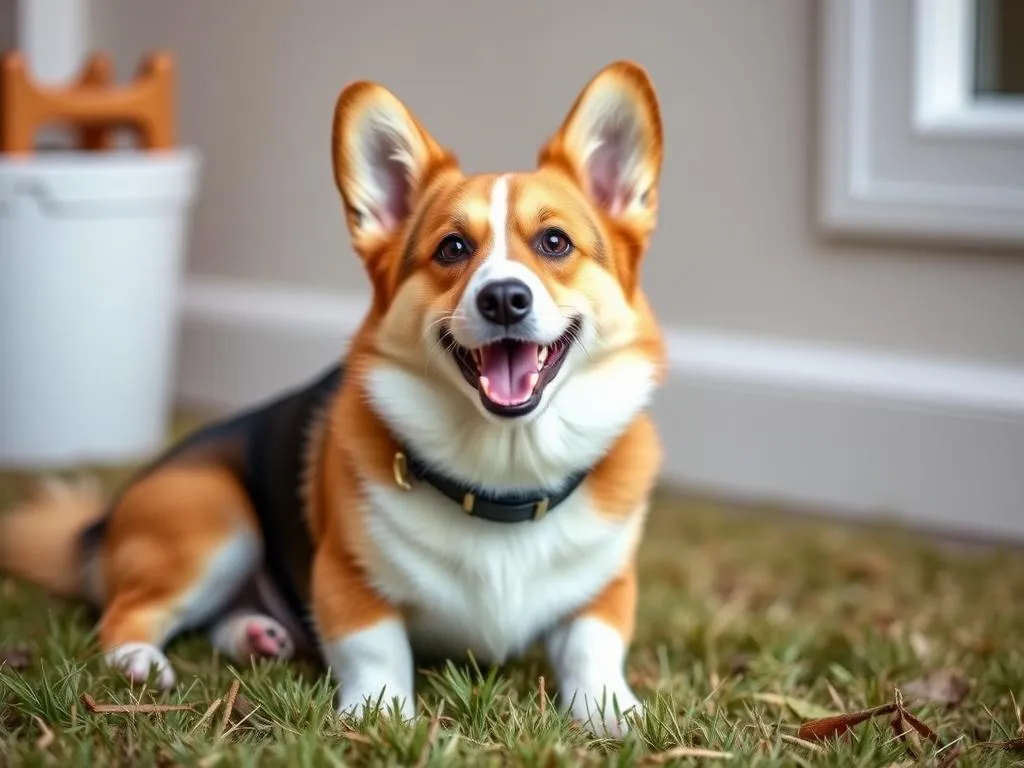
Potty training is one of the first and most important steps in turning your new Corgi into a well-mannered companion. This process sets the foundation for your dog’s behavior and helps foster a positive relationship between you and your furry friend. Corgis, known for their intelligence and playful nature, can be trained effectively with the right techniques tailored to their unique characteristics.
Understanding Your Corgi
Characteristics of Corgis
Corgis are a breed renowned for their intelligence, loyalty, and playful demeanor. They are quick learners and often eager to please their owners, making them suitable candidates for various training regimens. However, their stubbornness can sometimes pose challenges during potty training. Understanding these traits is crucial as they can affect how receptive your Corgi is to training.
Corgis are also known for their strong work ethic and can thrive on routine and structure. This characteristic plays a significant role in how to potty train a Corgi successfully. They benefit from a clear understanding of expectations, which can be reinforced through consistent training practices.
Common Potty Training Challenges
Despite their intelligence, Corgis may exhibit certain behaviors that complicate potty training. Their stubbornness can lead them to resist commands, especially if they feel overwhelmed or anxious. Additionally, Corgis are sensitive to their surroundings, which may result in anxiety during potty training. Recognizing these potential hurdles ahead of time aids in crafting effective strategies tailored to your Corgi’s needs.
Preparing for Potty Training
Supplies You’ll Need
Before embarking on your potty training journey, it’s essential to gather the necessary supplies. Here’s a quick list of items you should have on hand:
- Potty pads: Useful for indoor training, especially during inclement weather.
- Crate: A safe space for your Corgi that encourages them to hold their bladder.
- Treats: High-value rewards to reinforce positive behavior.
- Cleaning supplies: Enzyme-based cleaners to effectively remove odors from accidents.
Having these tools ready will streamline the process and help you focus on training rather than scrambling for supplies.
Setting Up a Potty Area
Selecting the right potty area is crucial for effective training. When choosing an outdoor potty spot, look for a quiet and accessible location. This area should be consistent, so your Corgi learns to associate it with bathroom breaks. If indoor solutions are necessary, consider using a dedicated space with potty pads, ensuring it’s away from your Corgi’s sleeping and eating areas to avoid confusion.
The Potty Training Process
Establishing a Routine
Establishing a consistent schedule is key to successfully potty training a Corgi. This routine should encompass feeding times, potty breaks, and playtimes. Puppies typically need to relieve themselves shortly after eating, drinking, or playing, so be vigilant during these moments.
As a general rule, take your Corgi outside every two hours, and immediately after they wake up, after meals, and after playtime. Gradually, your Corgi will learn to associate these times with going potty, which will foster good habits.
Teaching Commands
Teaching your Corgi a specific command for potty breaks can be incredibly beneficial. Commands like “Go potty” can be used to signal when it’s time to relieve themselves. Start by saying the command each time you take your Corgi outside to their designated potty area.
Consistency is vital here; use the same command every time and encourage them to perform the action. When they do, reward them immediately with treats and praise. This positive association will help reinforce the command in your Corgi’s mind.
Positive Reinforcement Techniques
Positive reinforcement is a cornerstone of effective training. Rewarding your Corgi immediately after they go potty outside will help them understand that this behavior is desirable. Treats are a great motivator, but verbal praise and playtime can also be effective rewards.
For instance, if your Corgi successfully goes outside, offer them a treat and enthusiastically praise them, saying, “Good potty!” This reinforces the behavior and encourages them to repeat it in the future.
Monitoring Progress
Keeping track of your Corgi’s potty habits can provide insights into their learning process. Look for signs that indicate they are becoming accustomed to the routine, such as signaling to go outside or going to their designated potty area without prompting.
Maintaining a potty journal can also be helpful. Note the times your Corgi goes out, how long they stay outside, and whether they successfully relieve themselves. This can help you identify patterns and make any necessary adjustments to their routine.
Troubleshooting Common Issues
Accidents in the House
Accidents are a normal part of the potty training process, and it’s essential to handle them appropriately. If your Corgi has an accident indoors, avoid scolding them. Instead, calmly clean the area with an enzyme-based cleaner to eliminate odors that may encourage repeat offenses.
Understanding the reasons behind accidents is also crucial. Factors such as excitement, anxiety, or changes in routine can contribute. If your Corgi is consistently having accidents, reconsider your training routine and adjust as needed.
Regression in Training
It’s common for dogs to experience regression during potty training, particularly after changes in their environment or routine. Factors like moving to a new home, changes in your schedule, or even a new family member can cause stress for your Corgi, leading to setbacks.
If you notice regression, return to the basics of potty training. Reinforce commands, maintain a regular schedule, and provide plenty of positive reinforcement. Patience is critical during these times; your Corgi needs to feel secure to re-establish their training.
Maintaining Long-Term Success
Transitioning to Independence
Once your Corgi has mastered the basics of potty training, it’s time to gradually give them more freedom. Start by allowing them access to a larger area of the home while maintaining regular potty breaks. Keep an eye on them to prevent accidents, and continue rewarding good behavior.
As your Corgi becomes more confident, they will learn to signal when they need to go outside. This transition allows them to feel more independent while still following the established potty routine.
Regular Potty Breaks
Even after your Corgi is fully potty trained, maintaining a consistent routine is essential. Regular potty breaks help reinforce good habits and prevent accidents, especially as your Corgi ages. As they grow older, their bladder control may change, requiring more frequent breaks.
Adjust the potty routine according to your Corgi’s needs. If they begin to show signs of needing to go more frequently, be proactive in increasing the number of potty breaks.
Conclusion
Successfully potty training a Corgi is a rewarding process that lays the groundwork for a happy and healthy relationship between you and your pet. By understanding their unique characteristics and potential challenges, you can develop a training strategy that works for your furry friend.
Remember to be patient and consistent, as every Corgi learns at their own pace. Celebrate small victories along the way, and soon you’ll find that your Corgi is not only potty trained but also a delightful companion in your home.









